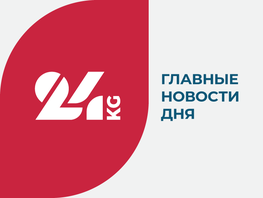A month and a half has passed since the 4th Consultative Meeting of the Heads of State of Central Asia, held on July 21 in Cholpon-Ata city.
Tajikistan and Turkmenistan never signed the key document of the summit — the Treaty of Friendship, Good Neighborliness and Cooperation. Dushanbe and Ashgabat assure that they intend to join the agreement, however, without specifying the dates.
Experts called the unwillingness of Emomali Rahmon and Serdar Berdimuhamedov to join the Central Asian association in the near future expectable.
The foreign policy of Ashgabat is based on the principles of neutrality in relation to any interstate agreements. Tajikistan stands for bilateral contacts in Central Asia. This indicates that the states of the region have not developed a unified approach.
24.kg news agency asked experts to share their opinion about the prospects for integration of the countries of the Central Asian region.
Talked about it and that is all?
Meanwhile, analysts are far from thinking that the integration attempt has failed. There is understanding that it is necessary to unite, and its contours have been clearly outlined against the backdrop of increasing sanctions pressure on Russia due to hostilities in Ukraine.
Experts believe that the states of Central Asia have a real chance to upgrade their geopolitical landmarks in the post-Soviet space in order to strengthen their international positions.
According to Kazakhstani political scientist Dosym Satpaev, there are also opportunities to accelerate the diversification of transport and logistics routes for Central Asia.
«This may lay the foundation for a more successful diversification of the economic model, primarily in the area of reduction of raw material exports and expansion of processing to produce higher value-added products. In order to strengthen military security, defense diversification of military ties between Kazakhstan and its neighbors is also necessary, both in the field of arms procurement and training of military personnel,» he said.
One should not keep all the eggs in one CSTO basket, especially when the increasing geopolitical turbulence can break them.
Dosym Satpaev
He believes that otherwise the region may fall into the zone of «crossfire», ending up between «the Russian hammer and the Western anvil.»
Play proactively
The political scientist noted that it is time to start playing proactively and form own agenda in the areas of security, economic cooperation, minimizing the risks and threats that could threaten the whole Central Asia.
Uzbek expert Farhod Talipov is of the opinion that the integration processes in the region do not depend on the armed conflict in Eastern Europe and have independent significance. The project will get a second wind not to make friends against Russia or the West, but to develop the region in a coordinated manner, gradually turning it into an independent geopolitical unit.
The expert emphasizes that this is the surest way to strengthen the countries themselves, their independence and sovereignty.
He also disagrees with the position that the leaders of Central Asia have not moved beyond declarative statements, and the demarche of Tajikistan and Turkmenistan once again confirmed that it is impossible to revive the Central Asian Cooperation Organization (CACO) in the region.
«Central Asia has never abandoned the intention of integration. Circumstances and open rivalry with a claim to the leading role between Kazakhstan and Uzbekistan hindered it. But with the coming to power of Kassym-Jomart Tokayev and Shavkat Mirziyoyev, these contradictions have been lifted,» Farhod Talipov believes.
However, his colleagues remind that border disputes remain: economic disputes between Kazakhstan and Kyrgyzstan and territorial disputes between Kyrgyzstan and Tajikistan. Without their resolution, it is possible to talk about the prospect of integration only at the level of idle conversations in the kitchen.
More questions than answers
In 2005, when Russia joined the Central Asian Cooperation Organization, created on the initiative of Tashkent, the association was transformed into the Eurasian Economic Community. The OCAC was abolished. Where are the guarantees that the Kremlin will not want to intervene in the process again? Obviously, the Russian authorities do not see a regional structure without active participation of Moscow.
Expert Asel Doolotkeldieva agrees with the opinion that today the state of integration processes in the region raises more questions than reasons for positive expectations. But there is one significant plus point: the states of the region firmly adhere to the principle of maintaining the rhythm of consultative meetings, and this indicates that regional dialogues are in demand.
«Let them be accompanied by complex conversations and not crowned with agreements, like the signing of final documents. But in order to draw conclusions about the viability or failure of integration processes, it is not enough to be based on one meeting,» the expert noted.
Such dialogues will continue to take place, and now we see the activation of regional platforms. Even more significant SCO forum will take place soon.
Asel Doolotkeldieva
She added: the future of integration projects depends not only on the situation in Ukraine and Russia, but more on the domestic policy of the Central Asian countries and the successful implementation of reforms aimed at democratization.
What’s next?
Experts urge politicians to show will and not repeat the mistakes of the past. There is no need to try to impose integration from above, «when some integration associations are loudly created, and then it turns out that these were stillborn ideas.»
In the context of the formation of a new world order, the process of creation of a Central Asian union is inevitable.
Everyone agrees that it is necessary to strengthen regional cooperation in order not to get stuck in the peripheral zone of world economic processes. But it is about the survival of the states of the region as economic and political actors.
Analysts note that regional cooperation is also an effective defense against unfriendly economic, political and ideological interventions from other geopolitical players.





